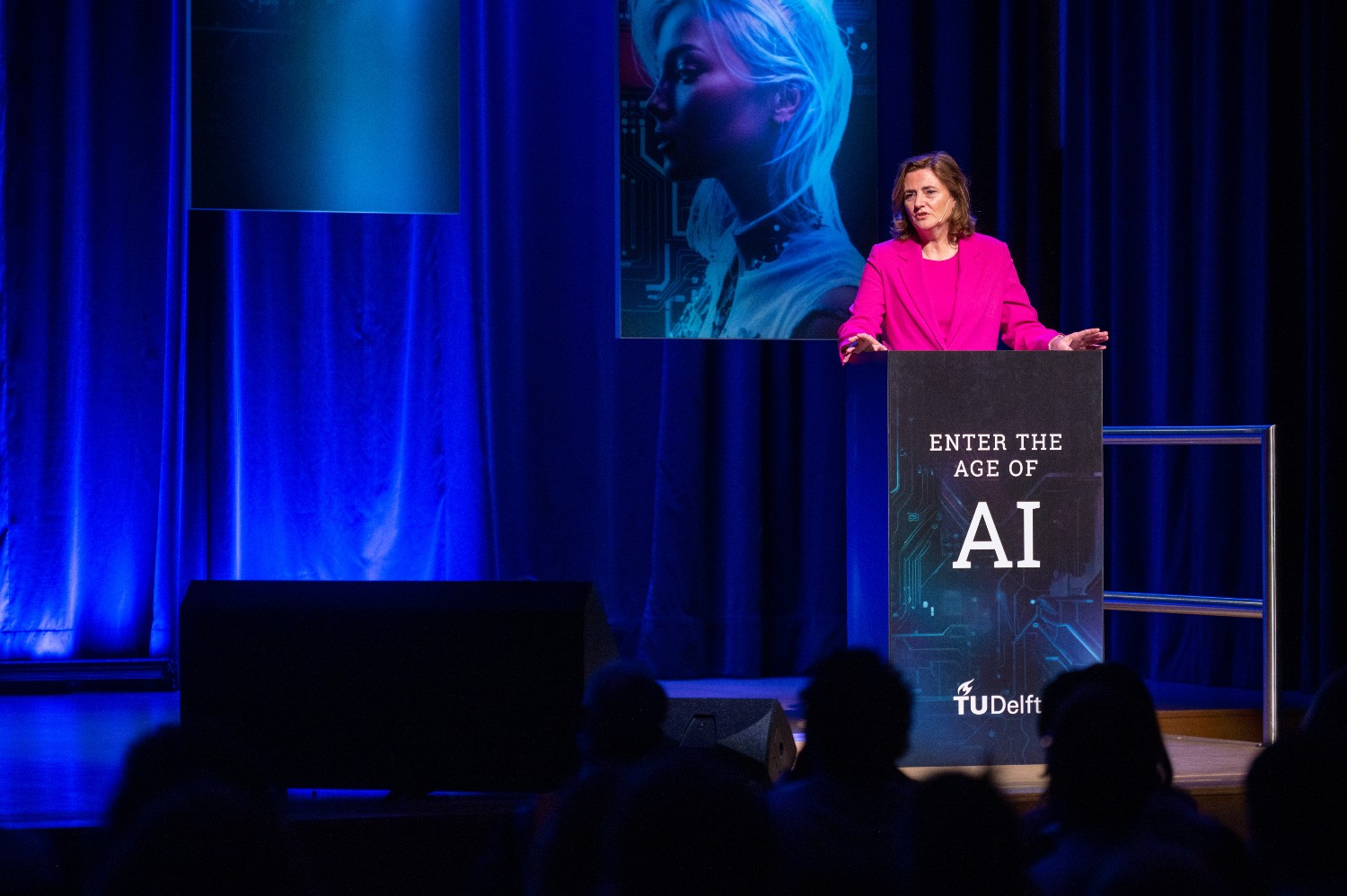Artificial intelligence is everywhere. Also in Delft, as the theme of the opening of the academic year. Outgoing minister and alumnus Van Gennip had a call for students.
Outgoing minister Karien van Gennip got her degree in applied physics in Delft in 1993. (Photo: Sicco van Grieken)
“Who has used ChatGPT?” When Vice Rector Magnificus Rob Mudde asked this question in an Aula full of first year and other students and staff members, about half of them put their hands up. An equally large proportion are intending to continue using artificial intelligence, or AI. Only a few of them were afraid of losing their jobs.
For most of those present, AI will be a given in their life and work. Even more so, many of them will have management roles in developing this computer technology. Hence the choice of Enter the Age of AI as the theme of the opening of the new academic year on Monday 4 September in the Aula.
“As engineers, you are the problem solvers that society needs,” says Outgoing Minister of Social Affairs and Employment Karien van Gennip to the audience. She herself was seated here in 1987 when she started her Applied Physics course. After briefly reminiscing about the past (the Dutch band Doe Maar, the Cold War, unemployment), Van Gennip looks to the future.
‘Nobody can allow themselves to be apolitical’
She strongly believes that AI is and will be everywhere. She points to the first wide-scale AI breaches in the Netherlands like the Toeslagenaffaire (childcare benefits scandal) and discriminatory checks (in Dutch) by DUO (office of education). Van Gennip argues that AI should be more sustainable, more social, fairer and more inclusive, and she sees a regulatory role for the Government and the European Union. “This laissez-faire policy must end.”
She also asks for greater engagement by the students, who will build better and fairer AI systems in the future. “You will be in charge then. It is up to people like you in society to shape it,” she emphasises. “Nobody can allow themselves to be apolitical. As Plato said, ‘tyranny could be the inevitable outcome of democracy’.”
Other contributions to the opening of the academic year came from Olya Kudina, Ethics/Philosophy of Technology, about ‘Demystifying AI’ and from Avishek Anand, AI information specialist, on ‘explicable AI’. What was picked up from the calls of the speakers is uncertain. At least half the first years were looking at their telephones during the presentations.
- A description of the opening is available on the TU Delft website.
- Read the first part of our series about AI: Robots that navigate like humans (that is, without GPS)
Do you have a question or comment about this article?
j.w.wassink@tudelft.nl


Comments are closed.